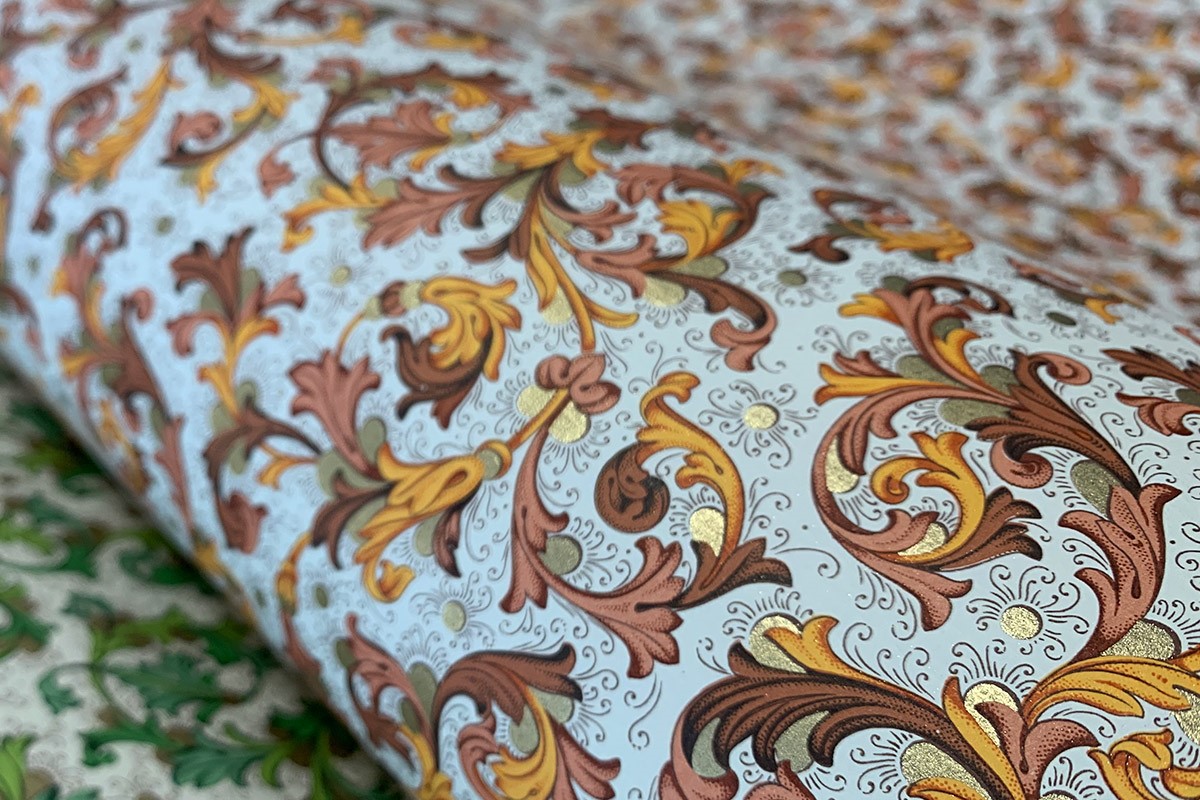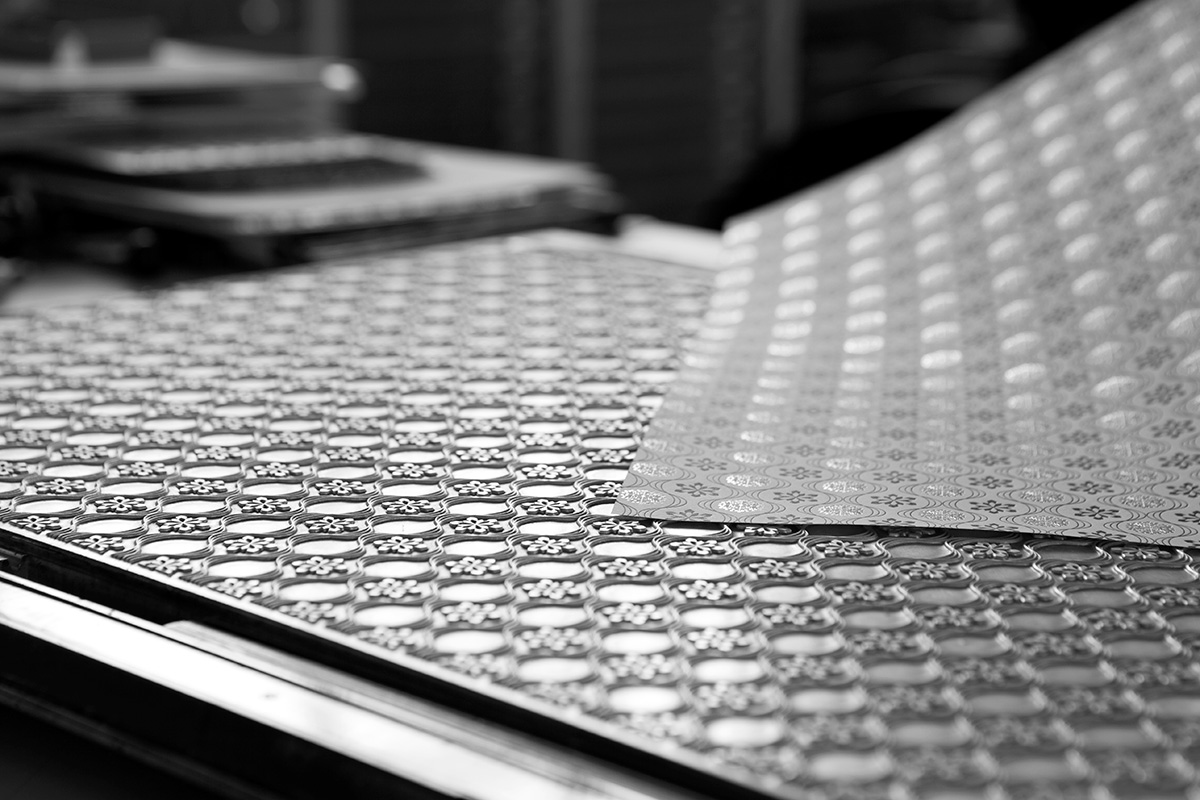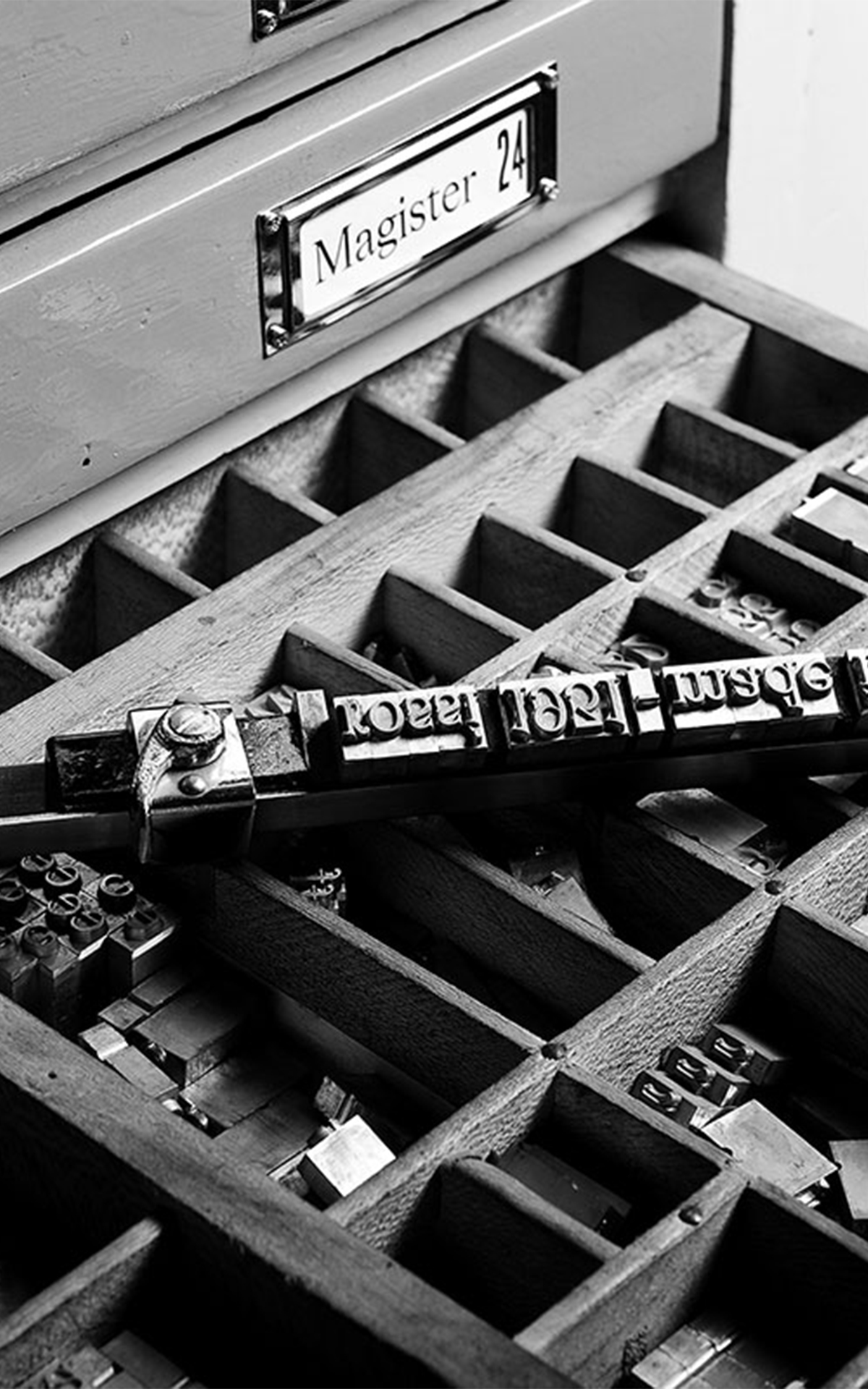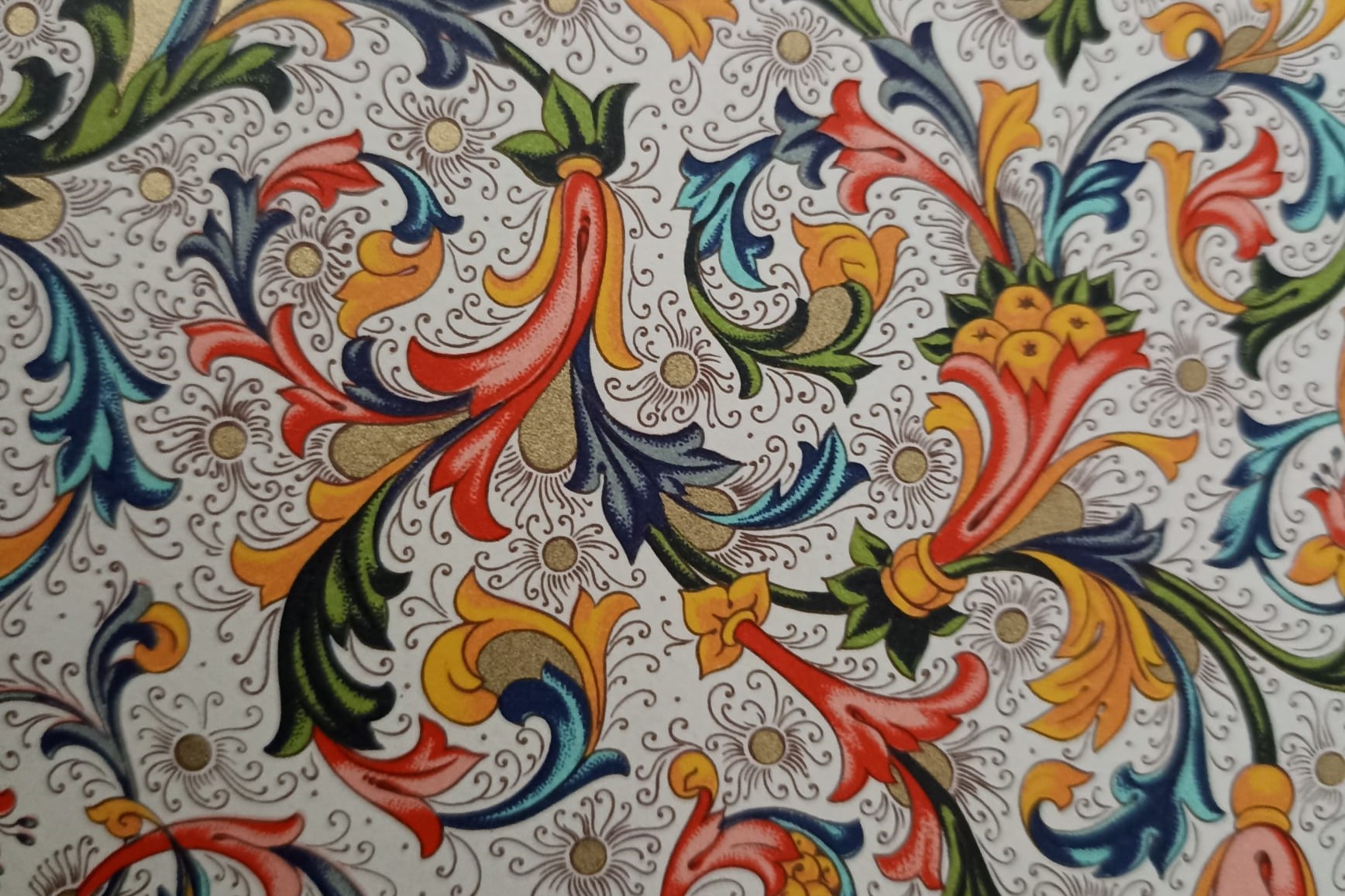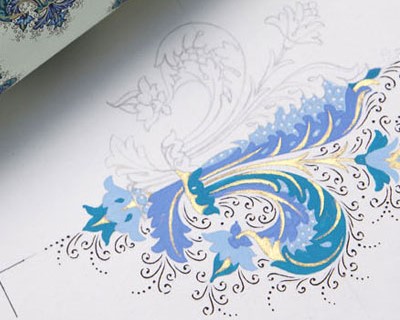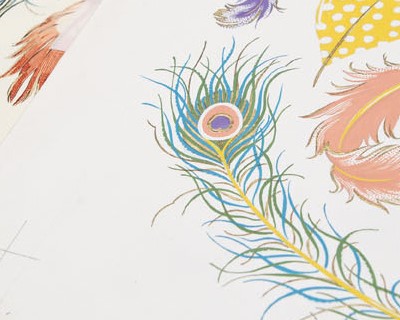Rossi’s paper is therefore perfect to wrap gifts in a magnificent and original manner, but it can have many other uses.
Let’s discover some of these!
Rossi 1931’s prestigious paper can be used to bind or line notebooks, diaries and books. By choosing the designs that you’re attracted to the most (between the over 350 designs) one can give a new life to ugly or old covers. In the case of book lining, pay great attention to the sizes of the book. Always leave one centimeter of paper in excess on the edges, so that you can fold this inside the book’s cover and fix it with some vinyl glue. If you want to do a painstaking job, just like a real binding artisan, you can apply a strip of fabric (possibly the same color of the design) along the spine of the book.
If you don’t know what to do with empty shoe boxes, by using for example the Florentine classic Rossi paper, you can line these boxes to create practical and beautiful box containers. With a bit of creativity, you can stack boxes to create useful structures such as desk shelves. In this case, you only need to stack two or three boxes without a lid on and the job is done!
Also furniture and drawers, especially if they’re antique, can be decorated and lined using Rossi 1931’s precious paper. For these projects, the ‘Varese’ multi use papers are suggested. After a thorough cleaning of the wooden surfaces you can attach these using a specific wood glue, or alternatively, you can use a more natural and ecologic option by making a water and flour mixture.
Finally, Rossi 1931’s prestigious decorative paper can be used to line and cover photo albums or frames.
